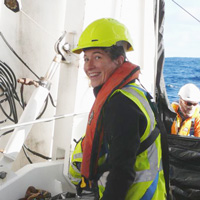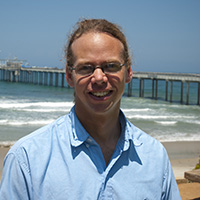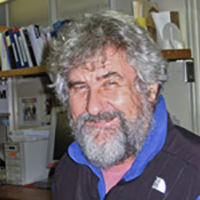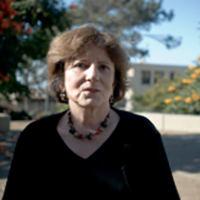Research at the intersection of biological and microbial oceanography and functional genomics.
Earth
Biogeochemistry
Biogeochemistry studies the chemical interactions between living things and the natural environment, ranging from how organisms incorporate and respond to elements in their environment to the alterations biological systems make to the the chemical environment of the Earth.
Academics
Centers, Labs, and Programs
AGAGE has been measuring the composition of the global atmosphere continuously since 1978.
Organic molecules in natural waters can help us to understand the global cycling of biologically important elements like carbon, nitrogen and phosphorus.
Focuses on the biogeochemical cycling of trace metals in marine systems.
We examine the diversity and activity of microbial life in the deep sea , including within the deepest ocean trenches.
CalCOFI is a long-term, interdisciplinary, cross-sectoral ecosystem research program off the coast of California that holistically studies the physics, biogeochemistry, and biology of the marine environment to inform the sustainable management of marine resources in the context of climate change
Zooplankton ecology, gelatinous zooplankton, trophic dynamics and effects on biogeochemistry, effects of climate change on pelagic communities
Levin is a marine ecologist who studies benthic ecosystems in the deep sea and shallow water.
Focused on the development of an understanding of interaction of light with seawater constituents, variability in ocean optical properties, and propagation of light within the ocean and across the air-water boundary.











